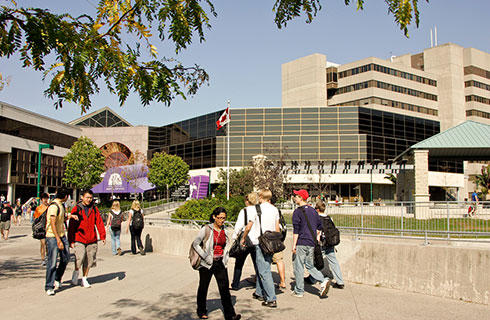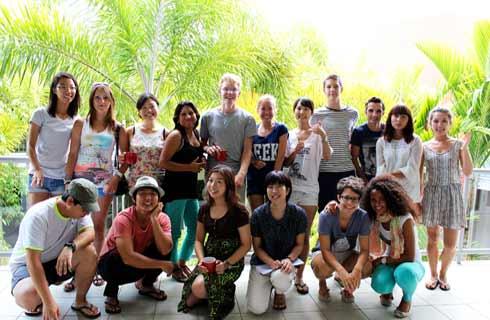国际学生入学条件
The following minimum requirements apply to all graduate programs and will be verified by the Graduate Division:
A bachelor’s degree or recognized equivalent from an accredited institution;
A grade point average of B or better (3.0);
If the applicant comes from a country or political entity (e.g., Quebec) where English is not the official language, adequate proficiency in English to do graduate work, as evidenced by a TOEFL score of at least 90 on the iBT test, 570 on the paper-and-pencil test, or an IELTS Band score of at least 7 on a 9-point scale (note that individual programs may set higher levels for any of these); and
Sufficient undergraduate training to do graduate work in the given field. Transcripts: Applicants may upload unofficial transcripts with your application for the departmental initial review. If the applicant is admitted, then official transcripts of all college-level work will be required. Letters of recommendation: Applicants may request online letters of recommendation through the online application system. Hard copies of recommendation letters must be sent directly to the program, not the Graduate Division. The Department of Psychology invites applications from students who are primarily interested in research. Applicants for the Psychology PhD are required to specify the area to which they wish to apply: Behavioral and Systems Neuroscience; Clinical Science; Cognition; Cognitive Neuroscience; Developmental; and Social-Personality. Applicants are required to name at least one faculty member with whom they wish to work. Applicants must hold a bachelor’s degree or its equivalent from an institution of acceptable standing, and may hold a master in psychology or another field. Previous concentration in psychology is not required. The department does not have an application for a terminal master’s degree: PhD only.
展开
IDP—雅思考试联合主办方

雅思考试总分
7.0
- 雅思总分:7
- 托福网考总分:90
- 托福笔试总分:570
- 其他语言考试:NA
CRICOS代码:
申请截止日期: 请与IDP联系 以获取详细信息。
课程简介
Our research goal is to understand how the organism and its capabilities develop throughout the lifespan. Our interdisciplinary approach is multi-species, multi-system, and multidisciplinary in nature. We study change over time in cognitive, linguistic, social, emotional, and neural processes. Our explanations include both neural accounts of the plasticity that is observed in the developing brain and other systems, and computational and psychological accounts of development. The bi-directionality of these processes is emphasized, with the organism's genetically program development being influenced by its physical and social environments and in turn influencing those environments. Thus, our research is situated at the interface between the fields of developmental psychology, computational modeling, psycholinguistics, cognitive psychology, developmental cognitive neuroscience, social psychology, cultural psychology, and clinical psychology. Our research examines numerous areas of development, plasticity, and change including sensory processes, cognitive capacities, language, reasoning, everyday knowledge of the world, emotions, and social relationships.
展开







 预科
预科 奖学金
奖学金 实习机会
实习机会 在校学习
在校学习 跨境学习
跨境学习 校园授课-线上开始
校园授课-线上开始 在线/远程学习
在线/远程学习














 伊利诺伊大学春田分校
伊利诺伊大学春田分校

 特伦特大学
特伦特大学

 佛罗里达国际大学
佛罗里达国际大学

 阿拉巴马大学
阿拉巴马大学

 纽约大学
纽约大学

 西蒙菲莎大学
西蒙菲莎大学









